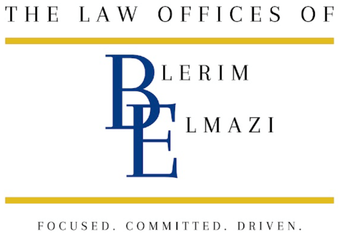
42 USC 1983 refers to a specific section of the United States Code, Title 42, Section 1983. This section is commonly known as “Section 1983” and is an important federal statute that allows individuals to bring lawsuits against state and local government officials and entities for violations of their constitutional rights.
Section 1983 provides a mechanism for individuals to seek redress when their rights, as protected by the United States Constitution and federal laws, are violated by those acting under the authority of state or local government. The most common claims brought under Section 1983 involve alleged violations of the First Amendment (freedom of speech and religion), Fourth Amendment (protection against unreasonable searches and seizures), and Fourteenth Amendment (due process and equal protection).
Historical Background:
Section 1983 traces its origins to the Reconstruction Era following the American Civil War. During this period, the federal government sought to protect the civil rights of newly freed slaves and ensure that the states complied with the post-Civil War Amendments, particularly the 13th, 14th, and 15th Amendments to the United States Constitution.
The 14th Amendment, ratified in 1868, is particularly relevant to Section 1983. Section 1 of the 14th Amendment states that no state shall “deprive any person of life, liberty, or property without due process of law” or deny “equal protection of the laws.” The 14th Amendment was intended to protect the rights of all citizens and provide a constitutional basis for federal intervention when state governments violated these rights.
Purpose of Section 1983:
Section 1983 was enacted in 1871 as part of the Civil Rights Act of 1871 (commonly known as the Ku Klux Klan Act). Its primary purpose was to provide a federal remedy for individuals whose rights, as guaranteed by the Constitution and federal law, were violated by state and local government officials. The statute was designed to address issues such as racial discrimination, violations of free speech and assembly, and abuse of government authority.
The key provisions of Section 1983 state:
“Every person who, under color of any statute, ordinance, regulation, custom, or usage, of any State or Territory or the District of Columbia, subjects, or causes to be subjected, any citizen of the United States or other person within the jurisdiction thereof to the deprivation of any rights, privileges, or immunities secured by the Constitution and laws, shall be liable to the party injured.”
In simpler terms, it allows individuals to sue state and local officials who, while acting in their official capacity, violate a person’s constitutional or federal rights. This can include violations of the First Amendment (freedom of speech, religion, and assembly), the Fourth Amendment (protection against unreasonable searches and seizures), the Eighth Amendment (protection against cruel and unusual punishment), and other constitutional protections.
Significance and Impact:
Section 1983 has played a crucial role in the development and protection of civil rights in the United States. It has been instrumental in various landmark civil rights cases, including those involving desegregation, free speech, police misconduct, and prisoners’ rights. Some of the most famous Supreme Court cases in U.S. history, such as Monroe v. Pape (1961), Gideon v. Wainwright (1963), and Miranda v. Arizona (1966), have relied on Section 1983.
Over the years, Section 1983 litigation has been used to hold government officials and entities accountable for abuses of power and violations of constitutional rights. It has provided a powerful mechanism for individuals to seek redress when their rights are violated, making government actors more mindful of the Constitution’s constraints and individual liberties.
In summary, Section 1983 is a foundational law that emerged from the struggle for civil rights during the Reconstruction Era and has continued to be a cornerstone of civil rights litigation, ensuring that government officials are held responsible when they infringe upon the constitutional and federal rights of individuals.
Need Legal Assistance?
If you or someone you know has had their constitutional rights violated under Title 42, section 1983, we at Elmazi Law are here to help you. Contact us today for a free consultation. Send us a message from the form below to get started:

